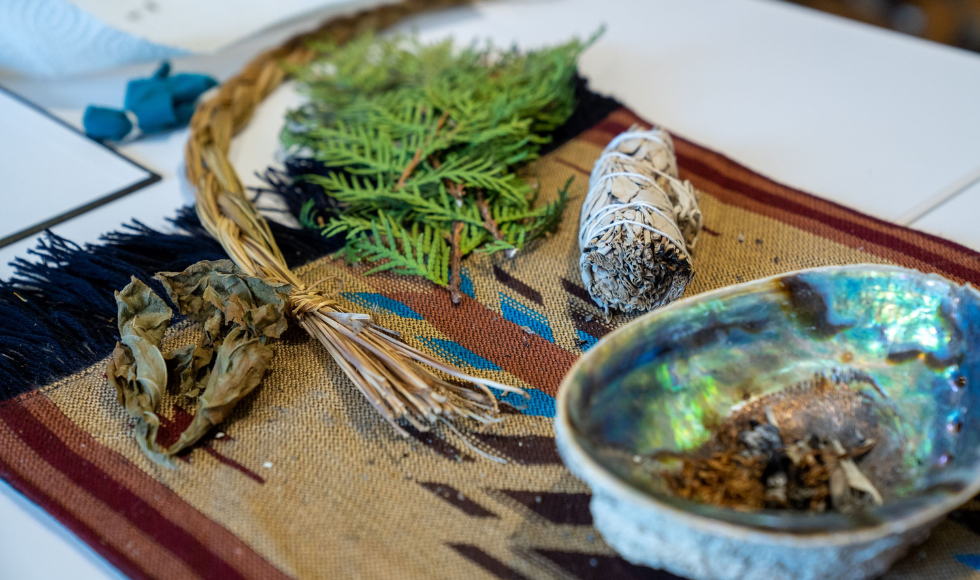Indigenous identity verification process introduced at McMaster

The new guidelines and process come after more than two years of work by an Indigenous-led committee, and are founded on integrity and respect.
McMaster is introducing a set of guidelines and process to verify Indigenous ancestry, the result of more than two years of work by an Indigenous-led committee formed through the Indigenous Education Council (IEC).
At the heart of the process they developed is the notion that who is or is not a member of the Indigenous community can only be determined by Indigenous communities, a notion accepted by the university.
“The responsibility on Indigenous people to prove their ancestry is a direct result of fraud that has occurred, specifically within the academic world,” said Dawn Martin-Hill, professor of Indigenous Studies in the Faculty of Social Sciences, and academic co-chair of the Indigenous Education Council.
Integrity and respect form the foundation of the process, committee members emphasize.
Because of that, one of the four core principles underpinning the new process is kindness, or an emphasis on this work being done with respect for one’s own journey of identity and belonging, said Robert Innes, chair of the Indigenous Studies Department and a member of the committee that developed the verification guidelines.
“Some people may feel vulnerable sharing or receiving a personal story. Showing kindness means focusing on someone’s identity story and how it relates to the job or award criteria,” Innes said. “We wanted to avoid a process that made judgements on the whole person.”
The other three principles are truth and truthfulness, kinship and good relations, and having a good mind.
The Indigenous-led committee hosted student town halls in March 2023 and participated in consultations and engagement with Indigenous faculty and staff which helped to inform the guidelines that will be used at McMaster.
Their efforts to be inclusive of different Indigenous perspectives took committee members beyond campus and into Indigenous communities.
“This verification process reflects our commitment to supporting Indigenous students, faculty and staff in a manner that is both respectful and just,” said Susan Tighe, provost and vice-president (Academic) and chair of the Joint Indigenous-Administrative Consultation Group, which participated in the consultations. “It also upholds our dedication to academic and institutional excellence by ensuring authenticity and integrity in our campus community.”
The process serves the sole purpose of assessing eligibility for scenarios outlined in the guidelines and will be available in two phases. The first phase, which launches in June, will be used for Indigenous student scholarships, awards and bursaries, including those covered by the expanded financial aid program introduced at McMaster earlier this year. The second phase will be used for staff and faculty recruitment and will be available in the upcoming academic year.
Both phases rely on Indigenous students, staff, and faculty to submit specific documentation through a form on Mosaic, the university’s administrative access system used by students and employees. In cases where an individual lacks a citizenship or membership card, additional documentation may be submitted for individual review by an Indigenous-led committee.
“It is essential to emphasize that this verification process is internal to the university and does not determine an individual’s Indigenous identity,” said Chrissy Doolittle, director, Indigenous Student Services and a member of the committee that developed the verification process.
“We worked to ensure the process is as sensitive to students’ perspectives as possible,” Doolittle said. “Indigenous identity is a complex issue and we are committed to providing other supports and services to all Indigenous students, regardless of their verification status.”
Resources and programs offered by Indigenous Student Services and the Indigenous Health Learning Lodge will continue to be available to all Indigenous students at McMaster, whether or not they meet the criteria for Indigenous ancestry verification.
Staff in Indigenous Student Services, including a new role dedicated to Indigenous Financial Aid, will work with students to ensure the verification process does not become a barrier to accessing financial services and opportunities.
Doolittle said everyone recognizes that it is uncomfortable for individuals to have to prove their identity and for those who do the work to verify it, but there are small wins achieved by the process at McMaster that she feels proud of.
“I am grateful that students only need to be verified once throughout their time at McMaster and we can provide assurance that the documents are reviewed by a committee of Indigenous leaders only,” she said.


